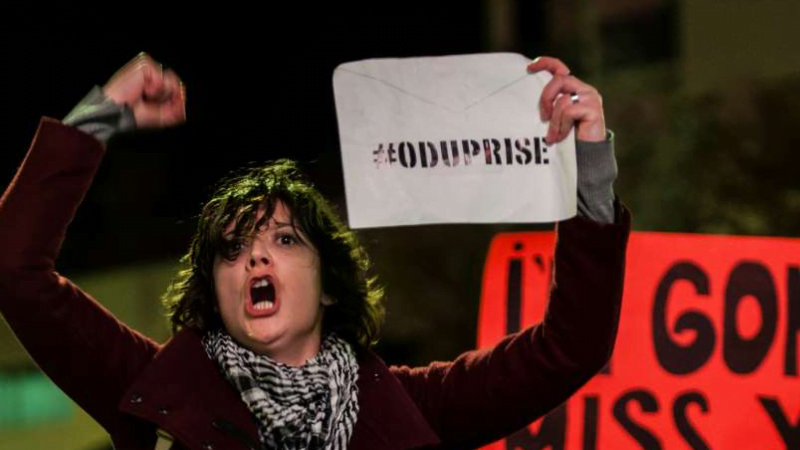On Saturday, over 10,000 Montenegrins protested in the capital of Podgorica over allegations of widespread government corruption and abuse of office.
Marching through the streets of the capital city, civil activists, members of the public and journalists chanted slogans such as “Milo, thief’ referring to numerous allegations of corruption, cronyism, and improper financial dealings by him and his ruling party, Democratic Party of Socialists (DPS).
This protest marks the fourth in as many weeks, and citizens are calling for the resignation of President Milo Djukanovic, his Prime Minister Dusko Markovic, the Supreme State Prosecutor Ivica Stankovic, and the Chief Prosecutor for Organised Crime, Milivoje Katnic.
Djukanovic has served as Prime Minister or President for almost all of the 30 years since the country became independent in 1991. The country is now seeking EU membership but has been told it needs to solve many of its issues regarding corruption and links to organised crime before membership will be considered.
The rallies started after a former ally of Djukanovic, Dusko Knezevic accused the government of corruption and suspicious financial dealings and cronyism, allegations that have been strongly denied. Dusko then fled to the UK after Montenegrin prosecutors issued an arrest warrant accusing him of fraud and money laundering.
Similar protests against corruption, limited press freedom, and incumbent governments links to organised crime have taken place across the region in Croatia, Serbia, and Albania with more rallies planned for later this week. MPs in Montenegro, Serbia, and Albania have also abandoned their positions in parliament, demanding an end to impunity.
Montenegro currently ranks 67 out of 180 on the Global Perception Index and the EU has raised concerns around the effect that corruption has on the process of its further democratisation.
The abuse of public office and resources for private benefit, as well as the prevalence of nepotism and the lack of independence in the judiciary, are listed as significant causes for concern. Transparency International adds that legal processes are “not entirely independent or lack sufficient power to sanction perpetrators, particularly in the case of senior public officials”.
Violations of press freedom and the harassment of journalists by the country’s rulers are also commonplace and crimes against journalists are rarely if ever, punished by the courts.
Following the Vitals Global Healthcare scandal in Malta, it came to light that Vitals had signed a secret Memorandum of Understanding with the Montenegrin government in 2016. As they did with the Maltese government, the deal was pitched and signed before the public was informed of the partnership to take over the running of some of the country’s hospitals.
Then in January, the Prime Minister appointed his personal friend, water polo coach Karl Izzo as the Maltese ambassador to Montenegro. His appointment was controversial, considering his total lack of experience in diplomacy or political affairs, and put down to his close links to the Prime Minister.












